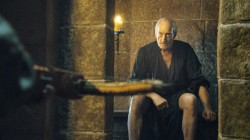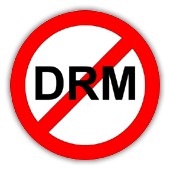How are you then? Been keeping up with the World Cup? I must say as an avid football (or “soccer”) fan, I found it hard to give a crap at the start, but I’m starting to get the fever. Still not enough to get me to stay up at 2 a.m., or to get up in the early morning to catch a live game here in Australia, not even on the weekends.
A quick glance at this WNR and you might wonder where the “news that wasn’t” section has gone, where I cover the stories that weren’t really important enough, but are still worth a mention. They’re still here, but are now integrated into the main WNR below, which works best with the stories we have this week.
Time for kick-off …
![]()
I’m not even sure if you can still call it news if it happens with such regularity and frequency, but in case you haven’t guessed, Game of Thrones broke yet another piracy record with the season 4 finale ‘The Children’. I’ll leave it to you to check the actual stats (hint: a lot of people downloaded it), but the reaction to this latest non-news was what interested me the most. Especially the reaction here in down-under-land.
So Australians were once again top when it came to downloading GoT, and our consistency in outperforming all other countries by once again lifting the World Cup trophy for piracy is, from a neutral point of view, quite impressive really. Unfortunately, it’s attracted the wrong kind of attention, from the kind of people our newly elected, right wing, pro big business government likes to take advice/orders from. So plans involving of thousand dollar fines and Internet suspensions have all been floated, to the opposition of Internet users, ISPs, consumer groups and pretty much everyone who is not in the entertainment industry or in government (so definitely will become law, then).
Our situation, compared to the rest of world, is also unique in that we have a virtual monopoly controlling exactly how Game of Thrones can be watched legally here. We only have one cable TV provider, Foxtel, and they’ve snapped up the exclusive broadcasting as well as online rights to the show. So no iTunes, no equivalent of HBO or HBO Go (where you can minimize your subscription to just basic cable and HBO – here, the cheapest pack that includes the HD version of the show will run you well into the $80+ per month territory) – just the overpriced bundles being advertised as part of a so called “freedom of choice” (the choice Foxtel or Foxtel). It’s as if we’re the world’s experiment in seeing if piracy is influenced by lack of choice, high prices and competition, and you have to say that results are pretty conclusive. An experiment and set of results that are completely ignored by those that have the power to reduce piracy by affecting positive changes (as opposed to changes that have already been tried in other countries with no success).
Oh well.
It’s one thing to try and criminalize those that pirate stuff, but it’s quite another to treat everyone as criminals. Which, according to game publisher GOG, is exactly what DRM does. DRM assumes that the user is trying to do something untoward and then makes that user jump through hoops to prove that they’re actually trying to behave. Sometimes the hoops are so tricky that the user ends up not being able to use the product at all. So something that is only intended to prevent a very tiny minority of users that actually attempt to break DRM ends up affecting all paying customers. The proverbial trying to swat fly with a sledgehammer (if such a proverb actually does exist).
While GOG’s hatred of DRM is well documented, Ubisoft’s statement that DRM simply doesn’t work was, in my opinion, far more interesting. It’s the first time I think a major game publishers has so clearly outlined just how useless DRM is. Ubisoft’s VP of digital publishing Chris Early basically admitted that, given time, any DRM will be cracked (and after that happens, it becomes trivial for the layman to remove the DRM). What is more difficult to pirate, Ubisoft says, are the services that surround the game, mostly online services that enhance the gaming experience.
While it’s nice to see companies like Ubisoft give a red card to DRM, but as the recent Watch Dogs fiasco showed, these enhanced services must be well supported and resourced in order for them to become enhancements, and not just a fancy way of doing authentication and DRM.
But what if you want to deter pirates using something just as useless as DRM, but much easier to implement? How about a symbol for “no piracy” that you can display proudly on your products, whether it be a web page or on the box of the game? Now you can! The Unicode Consortium (had no idea that it actually existed) has released the latest version of Unicode, 7.0 (also had no idea that unicode had versions, and/or could be updated), which now features a “no piracy” symbol. There is no “yes piracy” symbol, but the classic skull and crossbones is in there, as is a extended middle finger that one can also use to thwart off the likes of the MPAA and RIAA. You can view the complete list of symbols here.
![]()
The NPD stats for May have been released and the PS4 again was the best selling console in the US. No longer surprising really, but what was interesting was that Wii U sales were up 85% compared to last May, largely on the back of Mario Kart 8. The latest Mario Kart game was also the second best seller for the month, behind Watch Dogs, which is impressive given that it was only available one the one platform.
Microsoft were surprisingly quiet about the performance of either of their consoles, so it must not have been great news on these fronts. With the $399 Xbox Ones now available, to atone for the own goal of forcing Kinect 2.0 on everyone, Microsoft will hope for a better June than May. The advertising blitz, starring Breaking Bad’s Aaron Paul, should also be hitting screens in the US right now to let everyone know about the new price, although for existing owners, the ad itself seems to have a few side effects.
These latest PS4 results seems to suggest that it is the console to beat in this generation, and Sony say they know why. Sony says that according to Nielsen stats, 31% of PS4 owners didn’t own a PS3, but did in fact own a Xbox 360 or Wii. Hmm, interesting. 17% didn’t own any last-gen consoles (PS2 holdouts?).
These results probably surprised Sony as much as anyone. Which explains why demand still outstrips supply in many parts of the world, including Europe – so sales might be even higher if Sony could keep up with demand for the console.
There’s no doubt that Sony is winning over gamers that were far from convinced about the PS3, both from a value proposition and other important factors such as online capabilities and quality of multiplatform games (better framerate, resolution and things like that). Whereas the PS3 was a (relative) pain to develop for, with online features that were sub-optimal, the PS4 seems to have addressed all of these issues. With Microsoft busy shooting themselves in their feet and other appendages, even some of the PS4’s flaws (such as scaled back media capabilities, compared to the PS3) are easily overlooked. And that price, as they say, is right!
——
Alright, enough trying to cram football related terms into this week’s WNR. See you next week.




